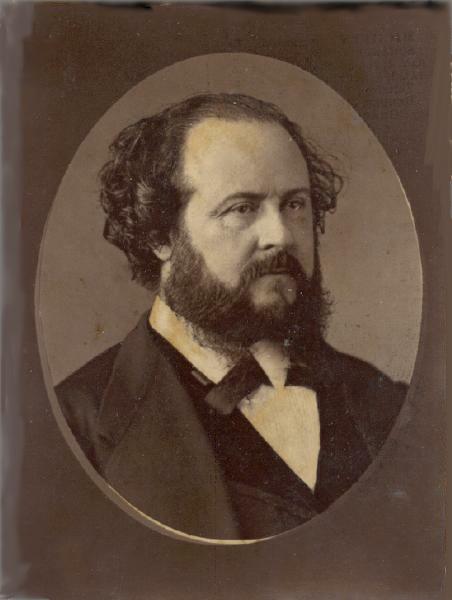After studies with Jean-Blaise Martin at the Conservatoire National in Paris, he made his debut at the Opéra-Comique in
1838 as Georges in L'éclair by Halévy. For the next ten years, he was one of pillars of the
Opéra-Comique, where he sang in the world premieres of: Le perruquier de la régence by Ambroise Thomas (30
March 1838); La figurante by Louis Clapisson (24 August 1838); Thérèse by Carafa (26 September 1838);
Régine ou Les deux nuits by Adam (17 January 1839); Le shérif by Halévy (2 September 1839);
Eva by Pier Antonio Coppola and Narcisse Girard (9 December 1839); L'élève de Presbourg by Luce
Varlet (24 April 1840); L'opéra à la cour by Boieldieu (16 July 1840); Le guitarrero by
Halévy (21 January 1841); L'aïeule by Boieldieu (17 August 1841); Le diable à l'école
by Ernest Boulanger (17 January 1842); Le duc d'Olonne by Auber (4 February 1842); Le code noir by Clapisson (9 June
1842); La part du diable by Auber (16 January 1843); Mina ou Le ménage à trois by Thomas (10 October
1843); La sirène by Auber (26 March 1844); La barcarolle by Auber (22 April 1845); Les mousquetaire de la
reine by Halévy (3 February 1846); L'ermite ou La tentation by Jean-Marie Josse (4 March 1846); Gibby la
cornemuse by Clapisson (19 November 1846), La damnation de Faust by Berlioz (6 December 1846), and Haydée,
again by Auber (28 December 1847).
In 1848, he toured the UK, with particular success at Covent Garden, where he sang Arnold, Raoul and Edgardo with Jenny Lind. Back
home, he joined the Opéra now, where he made his debut as Jean de Leyde on 24 July 1849, with Pauline Viardot-Garcia. At
the Opéra, he had splendid success for another ten years. World premieres that he sang at the Opéra: L'enfant
prodigue by Auber (6 December 1850); Le démon de la nuit by Jacques Rosenhain (17 March 1851); Le juif
errant by Halévy (23 April 1852); La fronde by Louis Niedermeyer (1 May 1853); La rose de Florence by
Emanuele Biletta (10 November 1856); and Herculanum by Félicien David (4 March 1859). In the 1850s, he made a
lot of guest appearances in Germany (primarily in Hamburg, Berlin and Dresden), where at times he even sang in German. On 3
August 1860, he was in the premiere cast of Gounod's La colombe in Baden-Baden.
In 1859, he lost his right arm in a hunting accident, but for another few years, he continued his career with an artificial arm at
the Opéra-Comique and abroad (Germany, Brussels, Prague...). When it became clear that his singing career was
over, he tried himself as a dramatic actor, but wasn't successful, and so from 1868, he was a professor of chant at the
Conservatoire National. His German was good enough to translate German lieder as well as Haydn's Schöpfung into French.
He also translated Tannhäuser, but Wagner did not approve of the translation, although he admired Roger as a singer.
Roger was a true celebrity in France, and friends with Meyerbeer, Gounod and Alexandre Dumas fils. He was an accomplished writer,
as his autobiography proves ("Le carnet d'un ténor", 1880), and he also composed songs. His most famous roles were Georges
Brown, Raoul, Fernand, Edgardo and Gérard de Coucy (La reine de Chypre by Halévy).
Reference 1: Kutsch & Riemens, reference 2, reference 3

